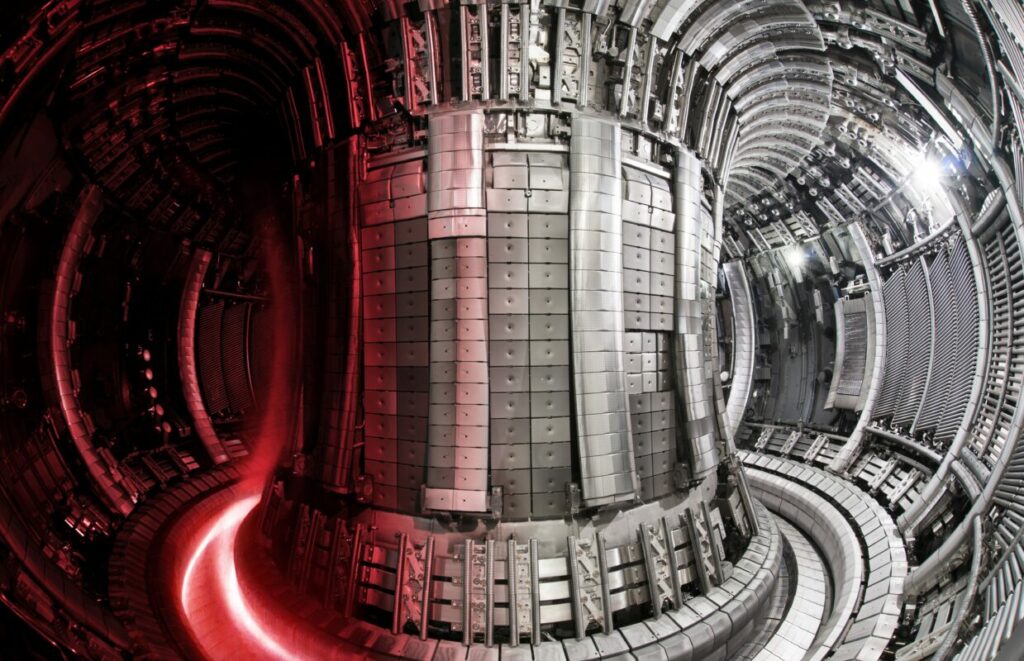The UK Atomic Energy Authority (UKAEA) has confirmed that the Joint European Torus (JET) experiments have yielded a world record in energy output for fusion.
JET, one of the world’s largest and most powerful fusion machines, demonstrated the ability to reliably generate fusion energy via its final deuterium-tritium experiments (DTE3). The organisation stated that high fusion power was consistently produced for five seconds, resulting in a record of 69 megajoules using 0.2 milligrams of fuel.
It is worth noting that a previous world record was set in 2021 by JET, which demonstrated sustained fusion over five seconds at high power. JET, which is located at the UKAEA site in Oxford, will now transition into the next phase of its life cycle for repurposing and decommissioning.
When deuterium and tritium fuse together they produce helium and vast amounts of energy, a reaction that is set to form the basis of future fusion powerplants.
Professor Sir Ian Chapman, CEO of the UK Atomic Energy Authority, said: “JET has operated as close to powerplant conditions as is possible with today’s facilities, and its legacy will be pervasive in all future powerplants. It is critical in bringing us closer to a safe and sustainable future.”
JET’s research findings have critical implications not only for ITER – a fusion research mega-project being built in the south of France – but also for the UK’s STEP prototype powerplant, Europe’s demonstration powerplant, DEMO, and other global fusion projects, pursuing a future of safe, low-carbon, and sustainable energy.
Nuclear fusion’s role in the UK energy mix
Nuclear fusion forms part of the UK government’s long-term plans to harness new technologies to build what it described as a “strong, home-grown energy sector” that reduces reliance on fossil fuels and exposure to volatile global gas prices.
West Burton in Nottinghamshire has already been selected as the home for the UK’s first fusion energy plant which will be developed as part of the government-backed Spherical Tokamak for Energy Production (STEP) project.
The plant, set to be built by 2040, will aim to deliver safe, sustainable, low-carbon energy for the UK on its path towards net zero emissions.
It is worth noting that the UK has signed various international agreements to support the development of fusion technology, including with the US in late 2023.





